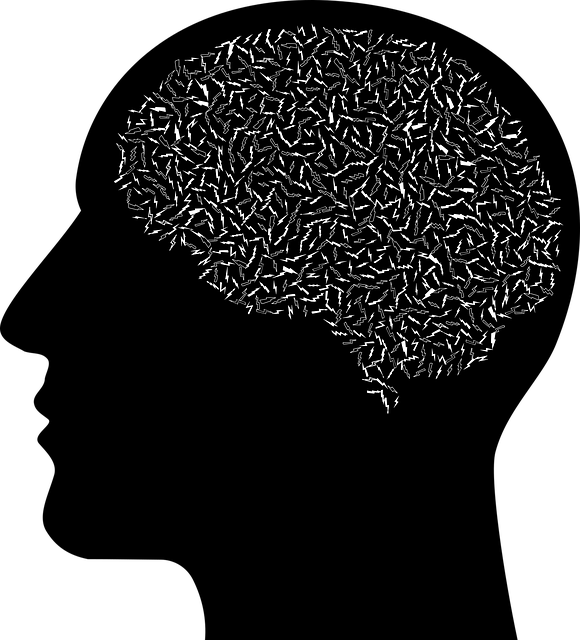Self-care is a powerful tool for managing and enhancing mental health, especially for those with conditions like Lafayette Dissociative Disorder Therapy (LDDT). By engaging in intentional practices such as mindfulness, exercise, adequate sleep, and hobbies, individuals can reduce stress and improve resilience. Identifying personal needs and seeking professional guidance from LDDT therapists is crucial. Integrating LDDT techniques into daily routines offers a transformative approach to trauma healing. Overcoming barriers through education, workshops, and coaching enables sustained self-care practices, fostering mental wellness over time.
Self-care is an essential aspect of maintaining good mental health, and understanding its impact can be life-changing. This article explores various self-care practices, focusing on how individuals can identify their personal needs and prioritize well-being. We delve into practical strategies, including the integration of Lafayette Dissociative Disorder Therapy, to overcome barriers and foster sustainable self-care routines. By addressing these techniques, readers will gain insights to enhance their mental health journey.
- Understanding Self-Care and Its Impact on Mental Health
- Identifying Personal Needs and Prioritizing Well-being
- Integrating Lafayette Dissociative Disorder Therapy into Daily Routines
- Overcoming Barriers and Sustaining Long-term Self-care Practices
Understanding Self-Care and Its Impact on Mental Health

Self-care is a fundamental aspect of maintaining and enhancing mental health, especially for individuals dealing with conditions like Lafayette Dissociative Disorder Therapy (LDDT). It involves intentional actions taken to nurture one’s physical, emotional, and psychological well-being. By prioritizing self-care, people can improve their overall mental resilience and cope more effectively with life’s challenges.
Incorporating effective self-care practices can significantly reduce symptoms of stress, anxiety, and depression. Simple yet powerful techniques such as mindfulness meditation, regular exercise, adequate sleep, and engaging in hobbies can make a substantial difference. Additionally, communication strategies play a vital role; discussing feelings openly with trusted peers or professionals allows for better understanding and support. The Mental Wellness Podcast Series Production has also gained popularity as an accessible way to learn various self-care methods and gain insights from experts. These initiatives collectively contribute to fostering mental wellness, ensuring individuals with LDDT can lead fulfilling lives.
Identifying Personal Needs and Prioritizing Well-being

Identifying personal needs and prioritizing well-being is a crucial step in improving self-care practices, especially for individuals managing conditions like Lafayette Dissociative Disorder Therapy (LDDT). It involves a deep understanding of one’s emotional, physical, and mental requirements, often shaped by unique life experiences. By recognizing these needs—be it adequate rest, creative outlets, or social connections—individuals can begin to set boundaries and make informed choices that foster their overall well-being.
This process requires introspection and self-awareness. Seeking guidance from professionals like therapists specializing in LDDT, who offer crisis intervention services and cultural sensitivity in mental healthcare practice, can be invaluable. They assist individuals in navigating complex emotions and prioritizing self-care as a proactive burnout prevention strategy for healthcare providers, ensuring they maintain their own mental health while caring for others.
Integrating Lafayette Dissociative Disorder Therapy into Daily Routines

Integrating Lafayette Dissociative Disorder Therapy (LDDT) into daily routines can be a transformative step for individuals navigating mental health challenges. LDDT, pioneered by Dr. Peter Levine, offers powerful tools to process and heal from trauma, which is often at the root of dissociative disorders. By incorporating these practices, such as the use of safe spaces, guided imagery, and body-oriented techniques, into morning routines or winding down rituals, individuals can create a sense of safety and calm that permeates their entire day. This integration not only enhances overall well-being but also provides much-needed trauma support services, addressing the deep-seated mental illness stigma reduction efforts while empowering individuals to take charge of their mental health.
Mental health professionals play a crucial role in teaching and guiding clients through LDDT practices, ensuring they receive the risk assessment and tailored care needed for successful implementation. This therapeutic approach’s focus on resilience and self-soothing can significantly improve one’s ability to manage stress, regulate emotions, and maintain mental clarity throughout the day. As with any therapy, consistency is key; dedicated time each day to LDDT exercises can lead to profound changes in one’s relationship with trauma, fostering a more balanced and fulfilling life.
Overcoming Barriers and Sustaining Long-term Self-care Practices

Overcoming barriers to self-care is a significant step towards fostering long-term mental wellness. Many individuals struggle with incorporating self-care into their routines due to various reasons, such as busy schedules, cultural norms, or past traumas like Lafayette Dissociative Disorder Therapy. For instance, those dealing with dissociation might find it challenging to engage in calming activities consistently. However, with the right support and strategies, these obstacles can be navigated.
Sustaining self-care practices requires a holistic approach that includes education, like Mental Health Awareness workshops and programs focused on Stress Management. Organizations offering Mental Wellness Coaching can play a crucial role in empowering individuals to prioritize their mental health. By combining therapeutic interventions with practical tools, people can learn to manage stress effectively, set achievable goals for self-care, and develop resilience, ensuring they continue to nurture their mental wellness over time.
Self-care is a powerful tool for enhancing mental health, and by understanding our personal needs, we can create lasting positive change. Integrating Lafayette Dissociative Disorder Therapy into daily routines allows individuals to navigate their unique challenges effectively. Overcoming barriers requires awareness and perseverance, but the benefits of sustained self-care practices are immeasurable, fostering resilience and overall well-being.














